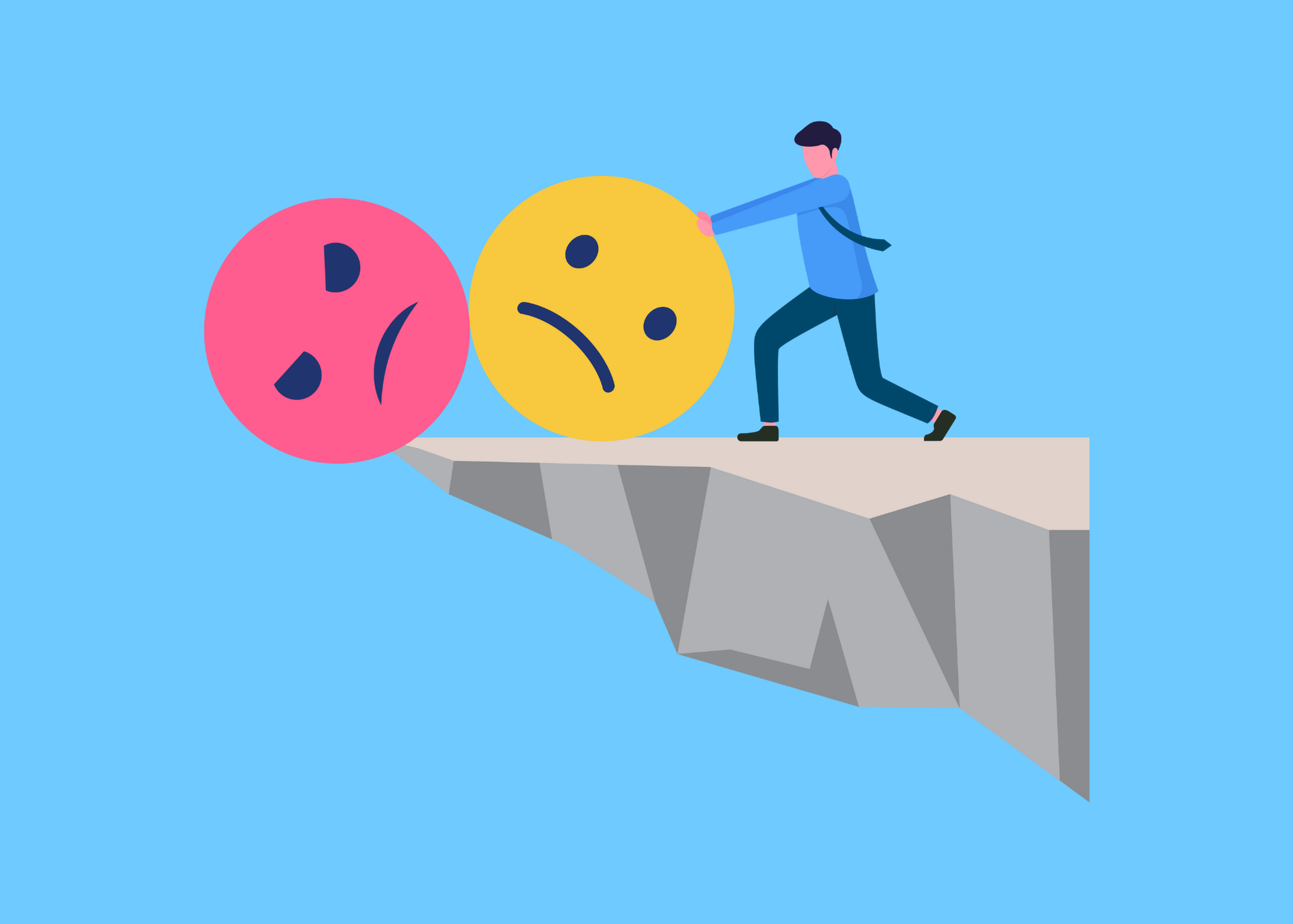Burnout, Perfectionism, and Imposter Syndrome: Why They Go Together—and How to Break the Cycle
You are not a fraud. You are a force.
Let’s cut to the chase: imposter syndrome isn’t a quirky little confidence hiccup. It’s a chronic stress amplifier masquerading as humility, and for high-achieving professionals, it can quietly undermine your mental health, tank your productivity, and derail your career. If you’re someone who looks successful on paper but secretly feels like a fraud waiting to be found out, welcome—you’re in good (and very accomplished) company.
The good news? You can beat it. Not by faking confidence or reciting empty affirmations, but with science-backed strategies that actually work. As a health coach specializing in chronic stress and burnout recovery, I see imposter syndrome not as a character flaw, but as a stress response—one we can rewire.
What Is Imposter Syndrome, Really?
Coined in the late 1970s by psychologists Pauline Clance and Suzanne Imes, imposter syndrome describes the internal experience of believing you’re not as competent as others perceive you to be—despite clear evidence of your success. Studies suggest that nearly 70% of people will experience it at some point.
While it may pop up occasionally for some, for high performers it tends to be chronic. Promotions, praise, accolades—none of it seems to stick. Instead of fueling confidence, these wins spark more anxiety: "How long until they figure me out?"
The Most Common Triggers:
Transitioning to a new role or industry
Being surrounded by high-achieving peers
Perfectionist tendencies
Lack of representation or mentorship in the workplace
Unmanaged, imposter syndrome becomes a silent saboteur. It can lead to overworking, procrastination, self-sabotage, and—you guessed it—burnout.
Where It Comes From: The Psychological Roots
Understanding imposter syndrome is half the battle. Here are a few of its most common origins:
1. Early Conditioning
Many of us were raised in environments that equated worth with achievement.
High grades, gold stars, being the “responsible one”—it all builds an internal metric: succeed = loved.
That belief doesn't magically vanish when we graduate. It morphs into overachievement, people-pleasing, and a crippling fear of failure.
2. Cultural and Structural Bias
Operating in systems that were not built for you
Hello, corporate patriarchy and institutional racism
You’re more likely to internalize doubt, no matter how objectively successful you are. When you don’t see yourself represented at the top, you start wondering if you belong there.
3. Personality Traits
Certain high performers are wired for self-doubt.
Perfectionists, overthinkers, and control freaks (I say that with love) are especially vulnerable.
You’re constantly scanning for flaws, which makes it easy to overlook your actual impact.
4. Toxic Work Environments
Unrealistic expectations, micromanagement, or lack of recognition
These cultures can reinforce feelings of inadequacy.
Add in unclear role definitions or inconsistent feedback, and even the most competent professionals start second-guessing themselves.
Practical Strategies to Overcome Imposter Syndrome
Imposter syndrome thrives in silence and secrecy. The antidote? Awareness, action, and a bit of sass.
1. Audit Your Inner Critic
You can’t challenge a lie if you don’t recognize it. Start identifying those imposter thoughts.
Thought: "I'm not qualified to lead this project."
Reframe: "Leadership isn't about knowing everything. It's about guiding, learning, and leveraging expertise."
Tactic: Keep a "win log." Every week, write down 3 ways you added value. Facts beat feelings.
2. Apply CBT-Inspired Thinking
Cognitive Behavioral Therapy (CBT) shows us how thoughts influence emotions and behaviors. Use it to disrupt negative self-talk.
Label the thought (“That’s an imposter thought”).
Challenge it (“What’s the evidence for and against this?”).
Replace it (“What’s a more accurate or helpful belief?”).
3. Ditch Perfectionism. Embrace Excellence.
Perfectionism is a socially accepted form of self-harm. Let that sink in. You’re not lazy if you submit something at 85%. You’re efficient.
Tactic: Adopt the 80/20 rule. Ask yourself: Where does maximum impact require only good-enough effort?
4. Use a Growth Mindset Framework
Stanford psychologist Carol Dweck coined the growth mindset: the belief that ability and intelligence can be developed through effort.
Instead of: "I'm not good at negotiations."
Try: "I haven't mastered this skill yet."
Tactic: After each challenge, debrief. What did I learn? What would I do differently next time?
5. Solicit Feedback Strategically
Imposter syndrome thrives on subjective interpretation. Feedback grounds you in reality.
Tactic: Ask 2-3 trusted colleagues or mentors:
What do you see as my key strengths?
What kind of impact have I made?
Write it down. Reread it before a big presentation, interview, or career leap.
6. Set Boundaries with Hustle Culture
Imposter syndrome loves a 70-hour workweek. It feeds on overcompensation. But working longer doesn’t make you better—just more exhausted.
Tactic: Set limits around work time, emails, and availability. Protect your energy like it’s venture capital.
7. Practice Self-Compassion, Not Self-Indulgence
Self-compassion isn’t about letting yourself off the hook. It’s about treating yourself like a high-performer who deserves support, not shame.
Tool: When you mess up, ask: "What would I say to a friend in this situation?" Say that. To yourself. Out loud.
A Healthier Nervous System Helps, Too
Chronic imposter syndrome doesn’t just live in your head. It dysregulates your nervous system. The solution? Restore baseline calm.
Key Lifestyle Interventions:
Movement: Regular physical activity reduces cortisol and boosts confidence. Even a 20-minute walk helps.
Sleep: 7–8 hours of high-quality sleep improves cognitive performance and emotional regulation.
Nutrition: Balanced blood sugar and omega-3s support better mood and brain function.
Mindfulness: Daily meditation, even 5–10 minutes, helps you detach from spiraling thoughts.
When to Call In Reinforcements
If imposter syndrome is impacting your ability to show up, lead, or grow, it might be time to bring in a professional. A health coach, therapist, or mentor can help you:
Identify root causes
Build personalized confidence strategies
Create accountability and consistency
You don’t have to white-knuckle your way through this.
Final Thoughts
Confidence Isn’t the Absence of Doubt—It’s What You Do With It.
Everyone has an inner critic. The difference between those who stagnate and those who thrive is whether you let that critic drive the bus.
High-achieving professionals are especially prone to imposter syndrome because they care. They strive. They evolve. But you don’t have to be at war with yourself to grow.
So next time your inner imposter pipes up, remember this: You’re not a fraud. You’re a force.
Now act like it.
Need Help? You’ve mastered the hustle. Now master the pause.
If your progress never feels like enough, the problem isn’t your performance—it’s your definition of success.
Let’s create goals that honor your ambition and your health.
📍Book your free 20-minute strategy session. This time, you’re building differently.
Article References
The sources cited in the article:
Psychology Today (PT). "Imposter Syndrome." PT - Psychology Today
National Institutes of Health (NIH). “Imposter Phenomenon.” NIH - Imposter Phenomenon
healthline. "Imposter Syndrome: What It Is, How to Overcome It, and More." NIH - Imposter Syndrome
American Psychological Association (APA). "Feel Like a Fraud?” APA - Feel Like a Fraud?
Harvard Business Review (HBR). “You’re Not Powerless in the Face of Imposter Syndrome.” HBR - You’re Not Powerless
Forbes. “Break the Chains of Self Doubt: Six Powerful Strategies to Triumph.” Forbes - Break the Chains of Self Doubt






